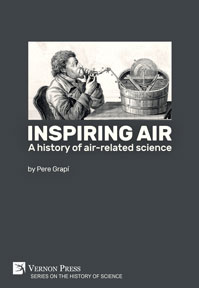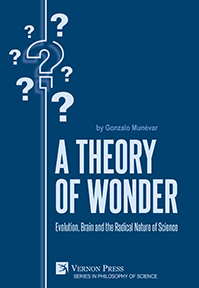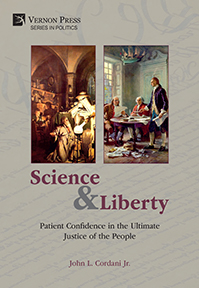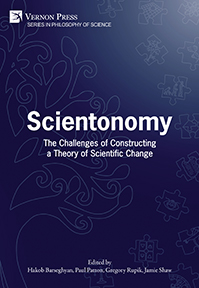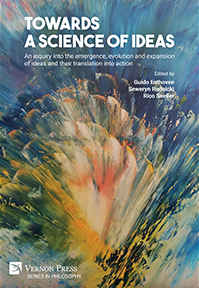Science, technology and society for a post-truth age: Comparative dialogues on reflexivity
Emine Onculer Yayalar, Melike Sahinol (Eds.)
by Hemant Kumar , Olga Restrepo Forero , Kyunghwan Lee , Tino Plümecke , Laura Schnieder , Javier Enrique Guerrero Castro , Michael Kilburn , Karen McGregor Richmond , Rachan Daimary , Alexia-Sofia Papazafeiropoulou , Lynda Dunlop , Joshua Stubbs , Matjaz Vidmar , Pedro Alves da Veiga , Janine Aldous Arantes , Ezgi Pehlivanli , Malcolm Ashmore
Purchase this book
(click here to change currency)
Taking us on a tour of sites from Colombia to the UK, from the Czech Republic to India, these insightful analyses tease apart the tangle of things called post-truth. Here, STS is well-equipped to show us laudable democratizations of science and dangerous dismantlings of knowledge and expertise, and how they can be found near each other.
Prof. Dr. Sergio Sismondo
Department of Philosophy
Queen's University, Canada
The contributors masterfully dissect the complexities of our era's disinformation challenges. This book stands out for its rich theoretical depth and empirical evidence blend. It offers a unique STS perspective on topics ranging from social reflexivity and post-factual politics to participatory research. It's an essential read for anyone seeking to understand and navigate the intricate landscape of truth, science, and society in our times.
Prof. Dr. Erkan Saka
Professor of Media and Journalism Studies
İstanbul Bilgi Üniversitesi, Turkey
It would be hard to find another volume that is so comprehensive in its coverage of the implications of the post-truth condition. But even more distinctive is the range of national voices that are registered in its pages. For those who think that ‘post-truth’ is an elite transatlantic phenomenon, the perspectives offered by scholars from the Czech Republic, Greece, Turkey, India and Colombia will prove especially eye-opening.
Prof. Dr. Steve Fuller
University of Warwick
Author of ‘Post-Truth: Knowledge as a Power Game’
In an era shaped by misinformation, conspiracy theories, and anti-science movements, Science and Technology Studies / Science, Technology and Society (STS) provides a lighthouse of insight and interdisciplinary research. This volume, 'Science, technology and society for a post-truth age: Comparative dialogues on reflexivity,' embarks on a transformative journey through the interdependencies of science, technology, and society, offering vital perspectives and new insights on these challenging topics.
This book, written by scholars in the field, reshapes post-truth discourse through STS and positions STS as a central force in addressing the post-truth crisis. It presents a compelling contribution that anchors STS at the heart of contemporary debates about truth and knowledge.
'Science, technology and society for a post-truth age: Comparative dialogues on reflexivity' is a contemporary and thought-provoking exploration of the evolving relationship between knowledge, truth, and society. It makes the case that STS is a catalyst for reshaping our understanding of truth in an age characterised by scepticism and uncertainty.
List of figures
List of tables
Acknowledgements
Introduction
Emine Öncüler Yayalar and Melike Sahinol
PART 1. Rethinking STS in the post-truth era
Chapter 1 (Good) post-truth, (bad) alternative facts, (fake) fake news and its ideological bubbles: a dialogue
Olga Restrepo Forero and Malcolm Ashmore
Chapter 2 ‘New’ way of critique of STS in the post-truth era
Kyunghwan Lee
Chapter 3 Social reflexivity as an approach to critical life science research on human diversity
Tino Plümecke and Laura Schnieder
PART 2. Post-factual politics
Chapter 4 The spread of the ‘gender ideology’ and the peace referendum in Colombia
Javier Enrique Guerrero Castro
Chapter 5 Living in post-truth: anti-politics and the power of the powerless in the twenty-first century
Michael Kilburn
Chapter 6 Re-conceptualising Scientific Expertise in International Criminal Investigations: An STS Perspective
Karen McGregor Richmond
PART 3. Participatory research as a panacea
Chapter 7 Alternative science communication in the post-truth moment: case of grassroots innovations and Shodhyatra in India
Hemant Kumar and Rachan Daimary
Chapter 8 Reflexive philosophical dialogue about science, technology and society: tackling the post-truth condition
Lynda Dunlop and Joshua Stubbs
Chapter 9 Towards the PERIpatetic approach: epistemology of close encounters within contemporary STS
Matjaz Vidmar
PART 4. Case studies
Chapter 10 Post-fake artivism: how activism and art can break reflexivity
Pedro Alves da Veiga
Chapter 11 Comparative dialogues on reflexivity: what do pre-service teachers need to understand about 'objectivity' and 'evidence' in their emergent workplace during a post-truth age?
Janine Aldous Arantes
Chapter 12 Masculinity of the Scientific Tradition in the Post-truth era: a comparative analysis of Sweden and Turkey
Ezgi Pehlivanli
Chapter 13 Sociotechnical equalities and inequalities in the post-truth age: The case of remote work in Greece during the COVID-19 pandemic
Alexia-Sofia Papazafeiropoulou
Author biographies
Index
Dr. Emine Öncüler Yayalar teaches Science, Technology, and Society courses at the Faculty of Engineering of Bilkent University. She holds a B.A. in Sociology from Boğaziçi University in İstanbul and M.A., M.Phil. and Ph.D. degrees in Sociology from Columbia University in New York. She has previously published on the sociology of knowledge, sociology of expertise, and gender studies. Dr. Yayalar is the co-author of the book 'The Autism Matrix', which the American Sociological Association awarded the Robert K. Merton book prize. Her current research investigates social determinants of knowledge in medicine, science, and technology.
Dr. Melike Şahinol is a Senior Researcher who formerly headed the 'Human, Medicine, and Society' research area from 2015-2023 at the Orient-Institut Istanbul, affiliated with the Max Weber Foundation in Bonn, Germany. She earned her Dr. in Sociology from the Eberhard Karls University of Tübingen after studying Sociology, Political Science, and Psychology at the University of Duisburg-Essen. She has received prestigious fellowships, including one from Harvard University's Kennedy School of Government's Science, Technology, and Society program. Dr. Şahinol played a key role in establishing the Turkish Scholarly Network for 'Science and Technology Studies'. Her research focuses on Human Enhancement Technologies and the transformation of the human body in socio-bio-technical contexts. Dr. Şahinol recently published an article in the Journal of Enabling Technologies titled '3D printed children's prostheses as enabling technology? The experience of children with upper limb body differences'. She co-guest edited 'Manufacturing Life, a Special Section in NanoEthics', which delves into the implications of emerging technologies.
See also
Bibliographic Information
Book Title
Science, technology and society for a post-truth age: Comparative dialogues on reflexivity
ISBN
978-1-64889-788-7
Edition
1st
Number of pages
338
Physical size
236mm x 160mm

![Science, technology and society for a post-truth age: Comparative dialogues on reflexivity [Hardback]](/file/22368/b51a6908aa8f6eee753e7d3b421c5fdf/1701090510.jpg)

